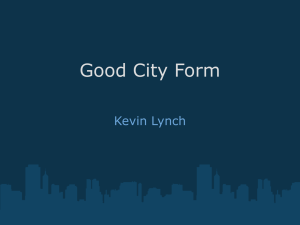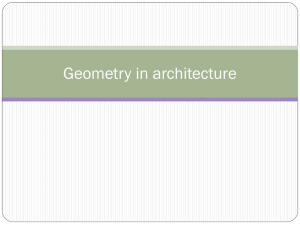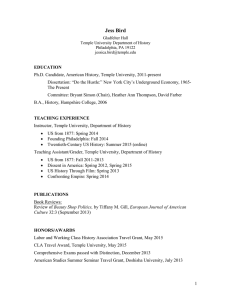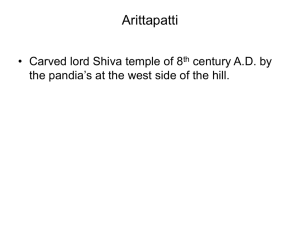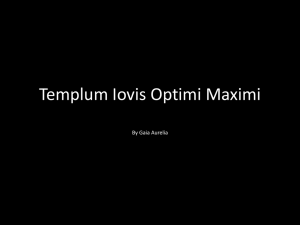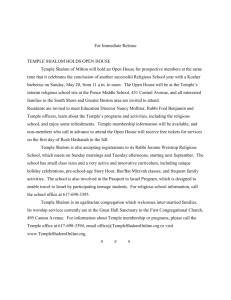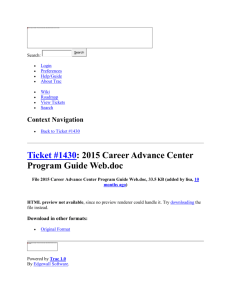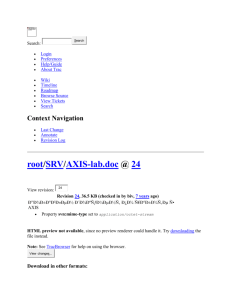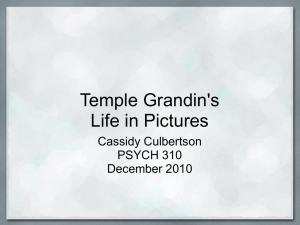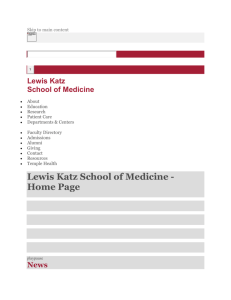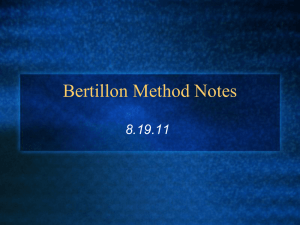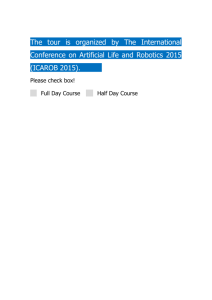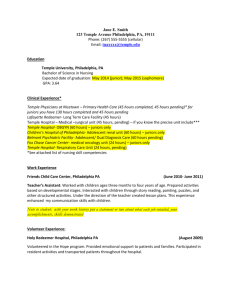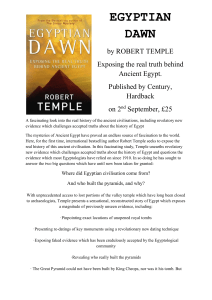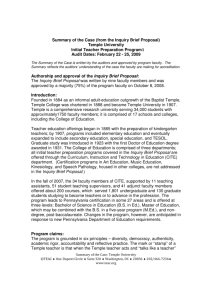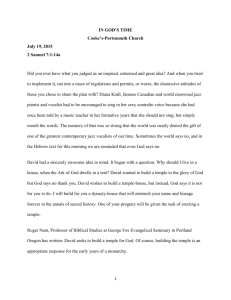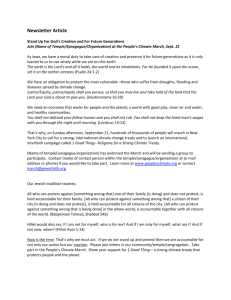Program Approval Process Presentation
advertisement
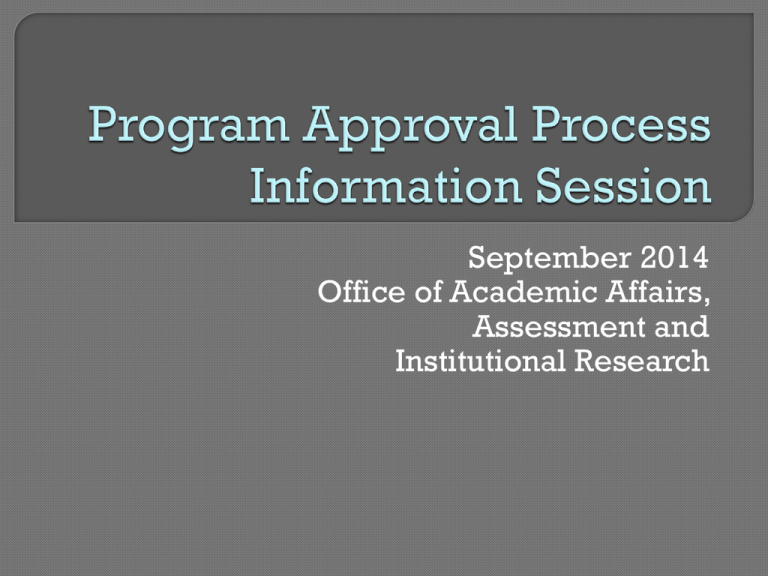
September 2014 Office of Academic Affairs, Assessment and Institutional Research Submission and approval process • Revised form • Document requirements • Posting of proposals • New deadlines Concerns • Raising concerns • Addressing concerns Coming soon – workflow To encourage and facilitate innovation while promoting transparency and avoiding redundancy and inefficiency. Four parts General program information (r) ii. Additional required information (r) iii. Equivalence, Confusion, Overlap or Redundancy with Existing Programs (as i. identified or raised) iv. Signatures r = required 1. 2. 3. 4. Request to Establish, Terminate or Change an Academic Program (word) Executive Summary (template) (word) Proposal (word preferred) One page curriculum overview (pdf) • 8 semester grid (undergraduate) • Semester-by-semester or list of courses with titles (graduate and professional) Submit to courses@temple.edu Review • Undergraduate Studies • Graduate Studies • Academic Affairs, Assessment & IR (professional courses) Schools encouraged to address issues of redundancy/overlap/confusion in preparation and submission stages of proposal Responsibility of proposer to • Seek endorsements • Address concerns TRAC: Temple Review of Academic Programs and Courses 10 day posting (aligned with BOT calendar) Basic information and curriculum grid sites.temple.edu/trac Concerns must fit one of the following criteria: • Proposed program equivalent/redundant with an existing program • Proposed program confusion/overlap with an existing program • Proposed program not aligned with areas/disciplines in the school/college Any individual can post a concern, however, schools and colleges are strongly encouraged to raise concerns through Dean’s Office (designee) Concerns submitted via TRAC Email notification to • courses@temple.edu • Individual responsible for proposal No concerns program considered for AAC agenda Concerns addressed during posting period program considered for AAC agenda Concerns not addressed APAC Program proposals submitted according to BOT-driven deadlines Allow time for additional approvals (Graduate Board, tuition and fees) Academic program items will only go before the Board in October, December, February/March, April/May [NOT JULY] Resources • www.temple.edu/aaair • sites.temple.edu/trac Contacts: • Jodi Levine Laufgraben • Michele O’Connor • Zeb Kendrick • Joan McGoldrick courses@temple.edu
